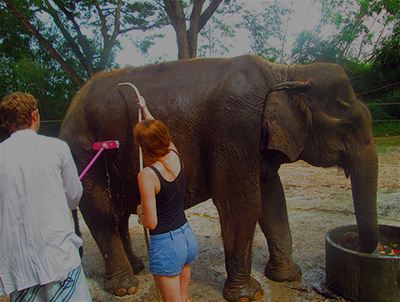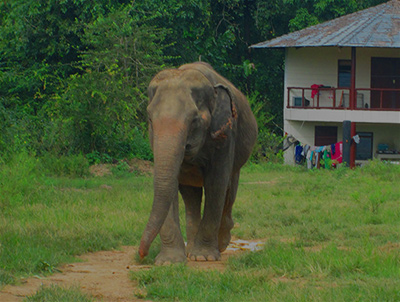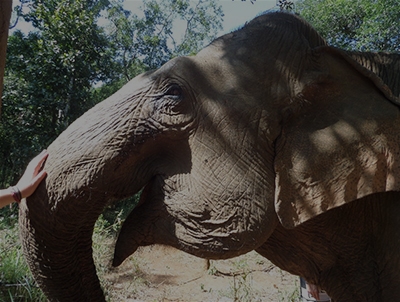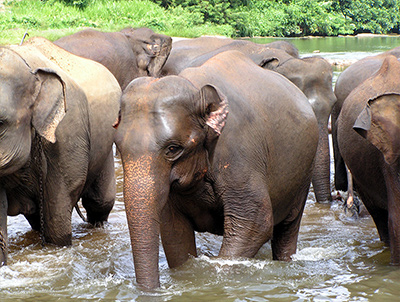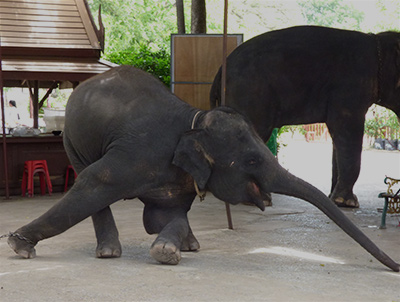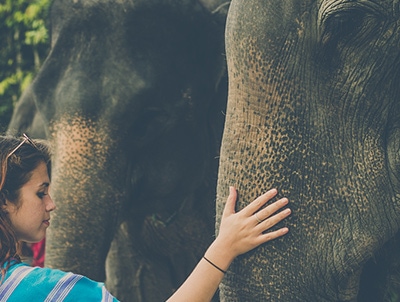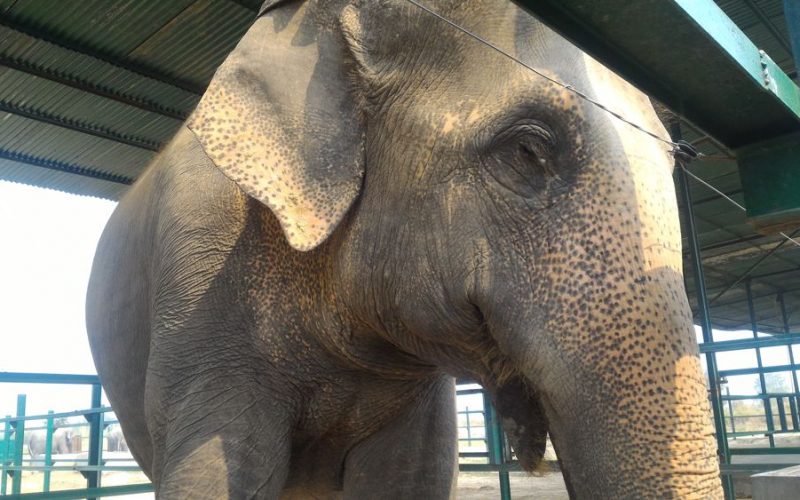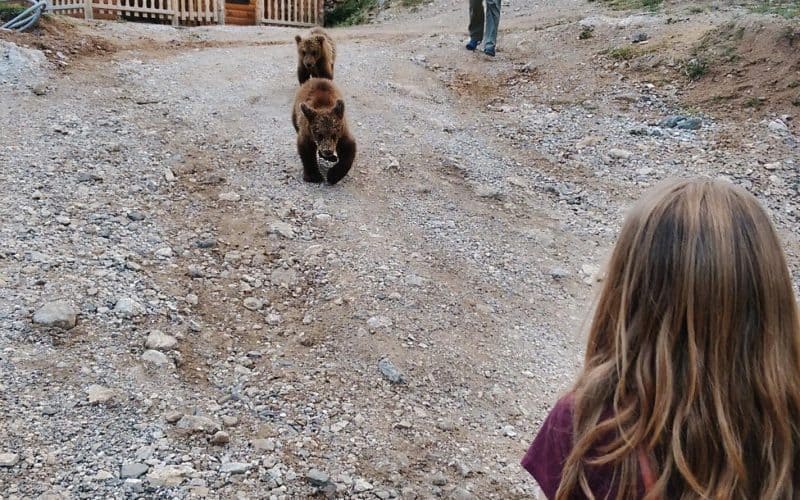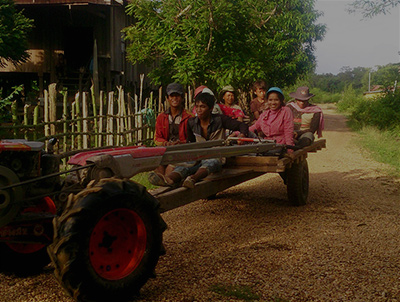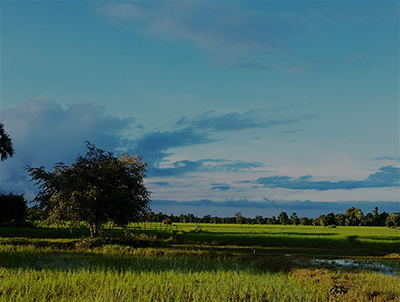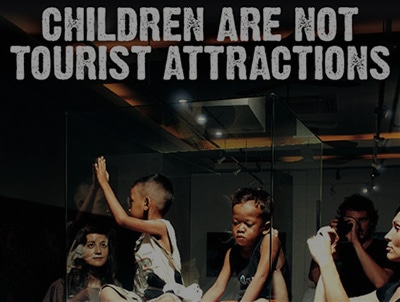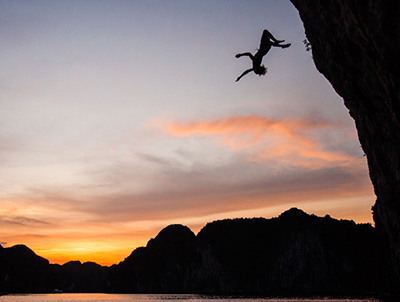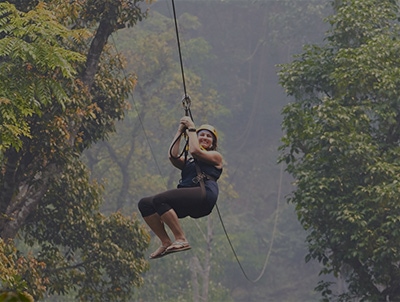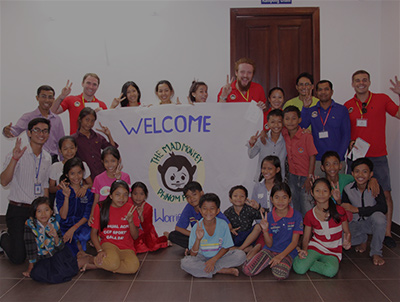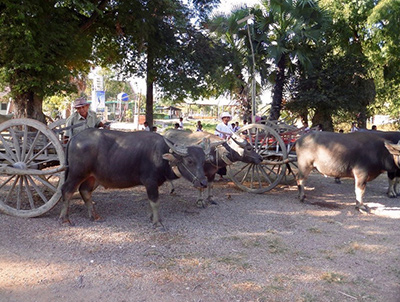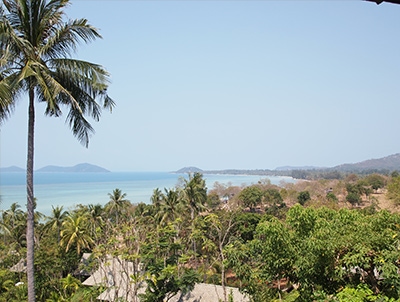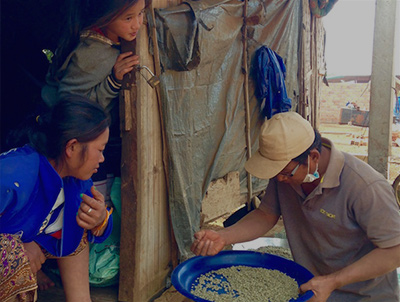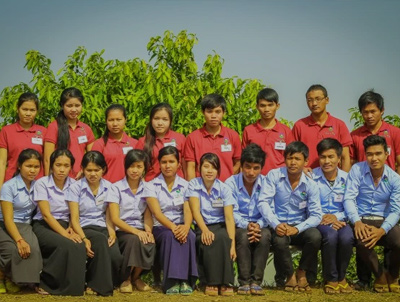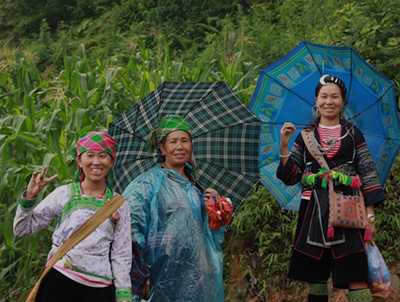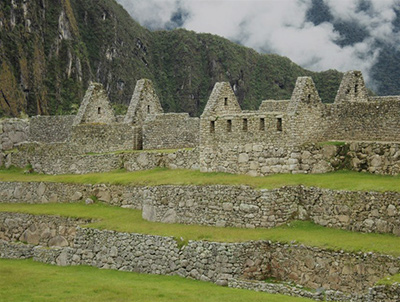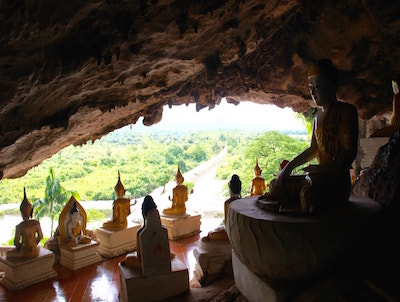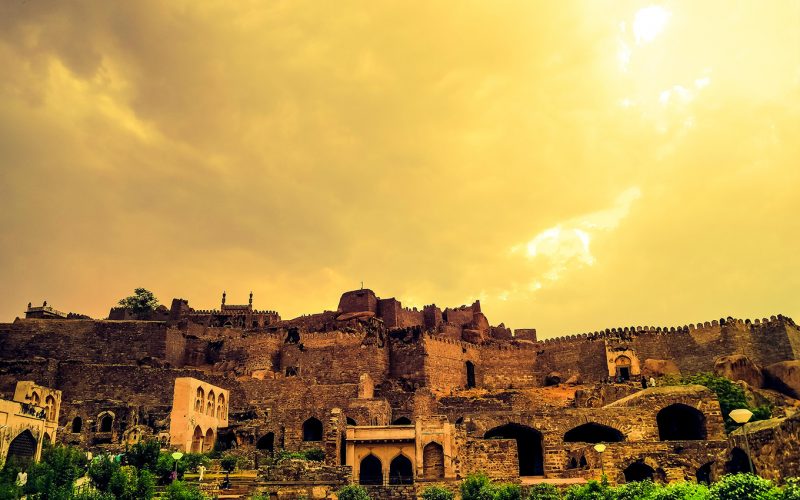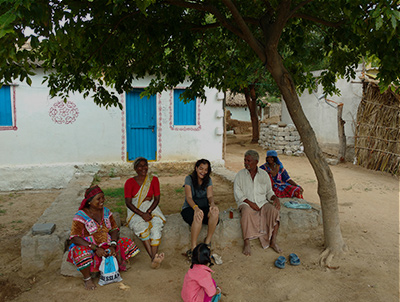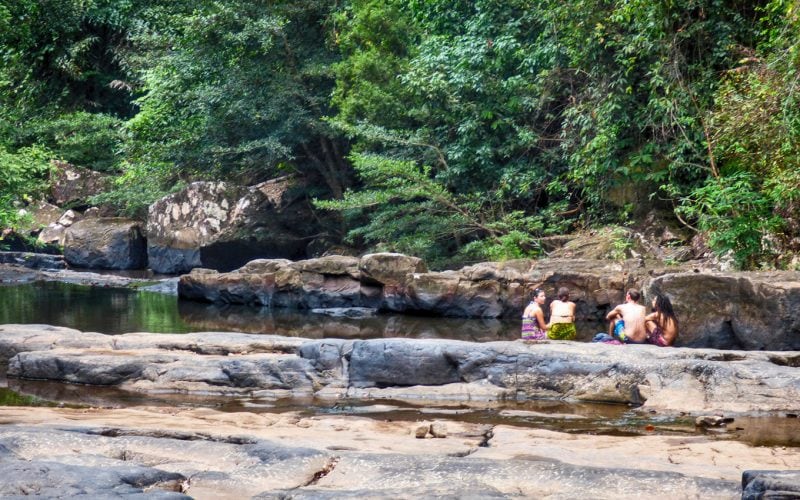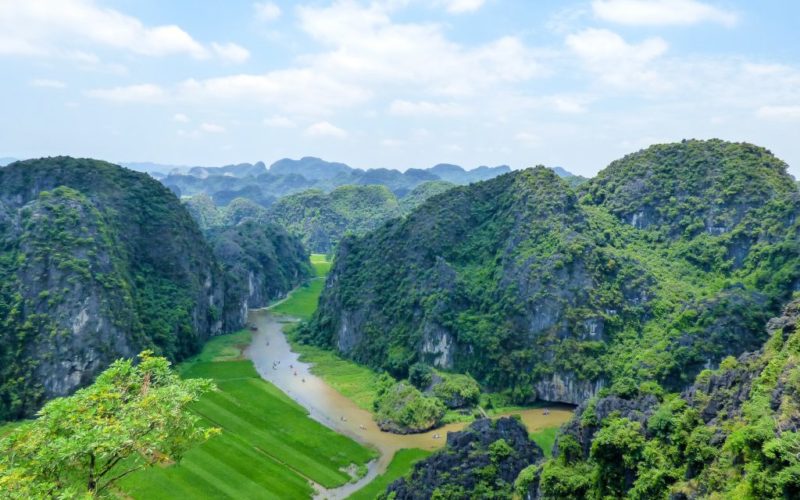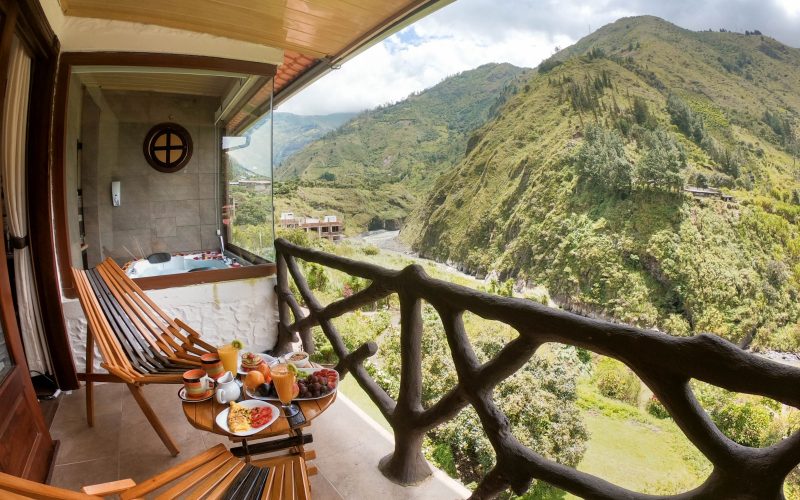At Backpacker Bible we believe in responsible travel that maximises the benefits, and minimises the negative effects of tourism.
By travelling responsibly you gain a more authentic experience enabling you to get more out of your travels, whilst making a positive contribution to the destinations and local communities you visit. The tourism industry employs more people worldwide than any other, there are millions of families who rely on the income from tourism and travellers for their daily needs. It is one of the largest industries in the world with real potential to act as a force of good and benefit millions of people.
However without prior knowledge tourists can unwittingly support projects that have a negative impact on the places they visit.
You don’t have to be a volunteer or an eco-warrior to embrace responsible travel. You can make every trip you take a better one if you spare a few minutes to know before you go… Be aware of cultural sensitivities, social and environmental issues and animal welfare problems so you can make informed choices that benefit the destinations and local people you visit.
VOLUNTEERING ADVICE
ANIMAL FRIENDLY TRAVEL
Responsible Travel Tips
Global advice for respecting cultural nuances and travelling responsibly.
Avoid buying products or giving money to begging children
Although your intentions are good by giving in this way you are maintaining an ‘unsafe daily life and preventing them from accessing school or training; you also prevent organizations from effectively helping them leave the street to access support. This keeps them locked in the poverty cycle’ – ChildSafe International
Respecting cultural differences and appropriate dress
Do a little research before you visit any destination about cultural or religious sensitivities you should be aware of. For instance, are you in an area where it may be frowned upon to enter a local cultural attraction wearing shorts, sleeveless tops or other revealing warm weather clothing? Religious temples and monuments in particular will often ask visitors to cover shoulders and legs and remove shoes before entry is permitted.
If you ignore such sensitivities you are likely to be refused entry into certain attractions but more importantly you could be causing serious offence or even putting yourself in danger. When travelling in Northern India for example it is sensible for female travellers to wear more conservative clothing as revealing dress could lead to unwanted attention.
Appropriate bargaining
You’ll undoubtedly visit many countries were bargaining is the norm and find yourself haggling for lots of items from taxi fares to t shirts. But be careful not to get too aggressive with your bargaining – in areas where the income is already incredibly low you could impact a person’s livelihood just for the tiny saving of a few cent. Even where locals may be seen to negotiate aggressively, similar behaviour from outsiders could significantly reduce the earnings of craftspeople and vendors.
Photographs
Always ask permission before taking photos or videos of people in the local community, especially if what you are photographing may be something private lekarna-slovenija.com. In some countries don’t be too surprised if you are told you can take a photo only to be asked for money afterwards.
In less discovered places where tourism is still relatively new you may find that you are the one being photographed. This can also happen in some countries where cultural nuances mean there is a particular fascination with certain ethnicities. Try not to get too concerned – the majority of the time you are being photographed purely out of curiosity. If it does get too much then politely decline any requests to have a picture and in some instances covering up with a scarf can help.
Responsible Travel Blog
- February 9, 2015 12:48 pm
- February 13, 2015 2:21 pm
- February 22, 2015 9:44 am
- July 31, 2015 2:39 pm
- January 15, 2016 12:38 pm
- January 20, 2016 4:54 pm
- February 15, 2016 12:15 pm
- February 20, 2016 11:00 am
- March 28, 2016 11:27 am
- April 17, 2016 2:58 pm
- May 16, 2016 11:29 am
- June 19, 2016 9:46 am
- August 15, 2016 1:29 pm
- April 7, 2018 5:06 pm
- February 28, 2020 2:53 am
- March 29, 2015 9:32 am
- May 21, 2015 8:47 am
- July 13, 2015 9:00 am
- September 22, 2015 7:16 pm
- October 1, 2015 12:03 pm
- October 12, 2015 8:13 am
- November 18, 2015 4:39 pm
- December 11, 2015 12:50 pm
- December 18, 2015 11:26 am
- December 24, 2015 11:24 am
- January 27, 2016 9:36 am
- February 24, 2016 10:25 am
- March 20, 2016 10:46 am
- April 4, 2016 11:22 am
- May 24, 2016 8:19 am
- July 10, 2016 12:57 pm
- July 23, 2016 1:42 pm
- August 20, 2016 3:07 pm
- September 1, 2016 12:47 pm
- September 15, 2016 8:55 am
- September 16, 2016 12:14 pm
- October 2, 2016 9:43 am
- April 22, 2017 8:48 am
- November 8, 2017 6:31 am
- September 28, 2018 9:30 am
- June 26, 2019 9:23 am
- November 7, 2019 6:11 am
- December 10, 2019 5:51 am
- March 6, 2020 2:30 pm
Respecting and Supporting Locals
Tourism should be of benefit to local people and communities; contributing to employment and providing economic benefits as well as helping to preserve the cultural and natural heritage of a destination.
Tribal Cultures & Remote Communities
Visiting tribal cultures and remote areas can be a wonderfully enriching experience and this kind of tourism can bring real benefits to communities if run responsibly.
Community based eco tourism (CBET) projects can be a great way to visit remote communities whilst contributing to sustainable programmes that benefit the area. This kind of tourism can help deter activities like poaching by offering locals an alternative income working in the tourism industry often as guides, protecting the wildlife and environment that visitors want to see.
Ensure that the tribe or community you are visiting has offered an invitation to tourists. If you don’t know then don’t visit. Do some prior reading on the culture of the place you are visiting and either research a local tour company with a good track record or hire a guide from the local community who can pass on their knowledge of what is, or isn’t, appropriate.
Paying for the services of local guides and purchasing locally made items and foods will help to benefit the communities you visit.
Porters
If you are going trekking in remote locations or mountain environment then you will more than likely be accompanied by a porter or shirpa. Porters and shirpas supreme fitness and local knowledge makes them invaluable to hiking and adventure based tourism and they should be treated as such.
Before arranging any treks check if the excursion operator is signed up to the International Porter Protection Group or International Mountain Explorers Connection (IMEC).
Many operators have already joined these groups including Intrepid, World Expeditions and Exodus. Community Action Treks (CAT) are a sister company of the charity Community Action Nepal who specialise in trekking excursions and the fair treatment of trekking crews.
“Portering costs are minimal compared to the overall costs of your holiday, so please don’t ‘scrimp’ or try to save money by carrying your own loads; or haggling with porters to accept a low wage when hiring them. The few pounds you may save – a small percentage of your holiday costs – will be a significant loss to the porter and his / her family” – Trekkers Code, Community Action Nepal.
Travel Good Badge
Keep an eye out for our Travel Good badge throughout the site. Placed next to organisations and travel initiatives that go the extra mile to encourage, promote and practice responsible travelling that benefits local communities, wildlife and the environment.
Country Specific Responsible Travel
More coming soon!


